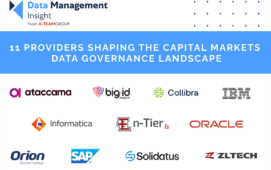In order to receive management buy-in, data management teams need to treat the front office as a client rather than as an enemy, said Michael Eldridge, head of European operations control at WestLB. “We need to dispel the myth that centralised data management is a luxury, build a better business case for investment by measuring the real cost of bad data and treat the front office as a client and better meet their needs,” he told FIMA 2008 delegates.
There needs to be a cultural shift in data management in order to more effectively approach senior management when attempting to get funding. Data management has traditionally been overlooked and understated, explained Eldridge, and this will continue if no action is taken to deal with underlying issues. “We unknowingly contribute to the myth that data centralisation and automation is a luxury by being too focused on the technical aspects of data. We need to instead focus on how data contributes to a firm’s P&L,” he suggested.
The real cost of bad data on institutions is measurable, he argued, giving examples such as the downstream impact of bad data in futures and options rules, which could result in missed options, and inaccurate data in currency and settlement accounts, which could result in late payments. “We need to look at what we provide and its measurable impact on the front office,” he added.
“The real areas of interest to senior management and the front office are levels of costs of exception management and of errors and claims,” he said. “We have not traditionally looked at our error rates in the same manner as other parts of the business, but this needs to be done.”
Eldridge recommended the use of a simple formula to achieve management buy-in: produce measures of technical structures (such as data volumes) plus operational risks (such as error rates), which equals data’s value to an organisation. “Another key part of this is treating the front office as you would an external client,” he said. “In order to better service them, we need to understand them.”
Rather than using technical jargon and confusing front office staff, data management teams should act as the vendors to their front office clients. Eldridge acknowledged that this would represent a significant attitude shift but warned that delegates must take heed in order to push data management projects up the corporate agenda.
Subscribe to our newsletter




